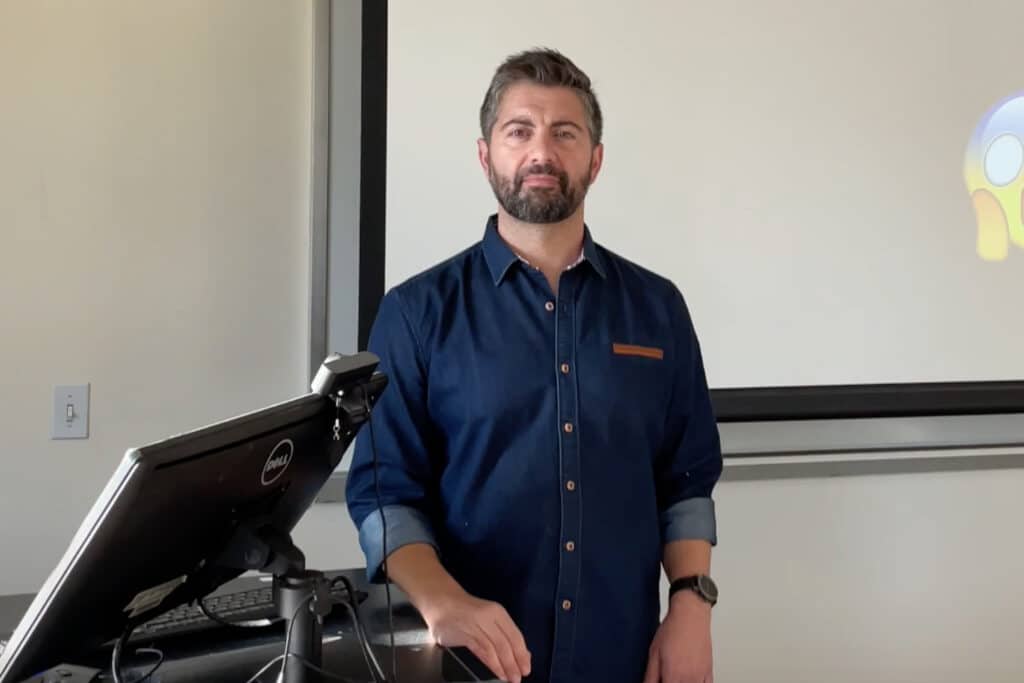Are you interested in a career as a therapist or mental health counselor? Do you wonder how to become a therapist? There are many options to choose from, and it can be overwhelming to understand which options to choose. Check out this video where Dr. Matt B discusses how to navigate these options for how to become a therapist!
A few resources to help: There is a good book on how to choose the right programs to apply to, experiences to get for those programs, and how to tailor your application. There is another good book about individual psychology and counseling programs to choose from. Lastly, this is a good book on how to understand and prepare for counseling Masters programs in particular.
How to become a therapist
Hi. I’m Dr. Matt B. I just gave a lecture on graduate school options in psychology and counseling to my college class. I do this every semester because as a field, mental health suuuucks at educating on career options. Having so many options can make things overwhelming to figure out. Also, there isn’t a lot of information to sort out which programs to choose.
People often wonder how to become a therapist, so I made this post because it is something I wish I had when I first sought information about graduate school.
To Ph.D. or not to Ph.D.
Traditionally, people think they need a Ph.D. in clinical psychology or should get one to impress others. But there are so many other options. If you are interested in a career in the mental health field, here is some information on directions you can take.
First, becoming a therapist or counselor does usually require completing graduate school. In order to choose which type of graduate program to apply for, the first thing to do is to ask yourself a few key questions.
- What am I interested in?
- Is it psychological processes, such as thought processes or emotion regulation?
- How family interactions affect mental health?
- What role do I want to play?
- Do I want to primarily do therapy or counseling?
- Conduct research?
- Conduct assessment?
- Examine biological processes and medications?
- Where do I want to work?
- At a university?
- Outpatient clinic?
- Inpatient mental health?
There are a lot of different degrees, so understanding what you’re interested in and the role you want to play can help you pick.

How to become a therapist: Graduate degrees
The difference between a Ph.D. and other mental health degrees is vast. A Ph.D. is a research degree that trains you in how to conduct research. To be competitive for Ph.D. programs, having experience in research labs (e.g., working as a research assistant) is the most helpful for your resume. I would stay away from a Ph.D. if you do not have an interest in research (more about why will come as you read on).
A Psy.D. or Doctor of Psychology degree is largely clinical or treatment oriented. It is designed to train someone to work in outpatient or inpatient counseling or in psychological assessment. Those who train in Psy.D. programs train to be consumers of research but not conduct it themselves.
Masters of Counseling, Clinical Social Work (CSW), or Marriage and Family Therapy (MFT) degrees train individuals in outpatient counseling. These degrees sometimes train people to work in inpatient settings or hospitals. It can be helpful to have experience in mental health settings or research labs prior to applying to these programs.
The type of counseling Master’s degrees to choose often depends on processes you’re interested in focusing on in therapy. A CSW program will often (but not always) train individuals in how community issues or sociological factors impact mental health.
MFT programs usually train people in how family dynamics impact mental health for individuals. They do individual counseling as well as family or marital counseling. Masters in Counseling programs may look at multiple perspectives depending on the training program.
Medical school to become a psychiatrist is an option if you have an interest in biological or medical processes (e.g., medication management). Nursing school to become a nurse in mental health treatment settings is also an option (although usually does not involve conducting therapy or counseling). The nursing option may require a Bachelor’s or Associate’s degree. Nurse practitioners typically earn a Master’s or doctoral degree in nursing. In addition, nurse practitioners can work as specialists in psychiatric nursing and prescribe psychiatric medications.
An honest take on how to become a therapist

My degree is a Ph.D. in clinical psychology. But in all honesty, I often steer people away from this option unless they really want to learn to conduct research. This is because Ph.D. in clinical psychology is such a long and drawn-out road. It often lasts 5 to 7 years. And that does not include the postdoctoral positions that most states require to earn a license.
Ph.D. programs usually require one or more large-scale research projects. These can take multiple years. If you don’t want to do research you’ll spend a lot of time feeling very unhappy and it will be like chewing glass (a phrase that one of my favorite graduate instructors used to use). However, if you like research, are interested in conducting it, or want to teach at the university level, a Ph.D. may be right for you.
Many of the other degrees take a lot less time. For instance, it takes 3 to 4 years to earn a Psy.D. and 2 to 3 years to earn the Master’s level degrees covered here. If you know you want to be a therapist or counselor primarily, this is a great option. You get direct training and you can spend less time in school. You also get more time to work in the field full time.
Closing
If you want to speak to a therapist, this video on how to choose a therapist can help. For a laugh, check out this episode on myths about therapists and psychologists.
There are a couple of helpful resources out there on how to find information about specific graduate programs. These also discuss the best ways to apply for these programs.
Here is a good book on how to choose the right programs to apply to, the experiences to get for those programs, and how to tailor your application. There is another good book about individual psychology and counseling programs to choose from. Lastly, this is a good book on how to understand and prepare for counseling Master’s programs in particular.
Hopefully, going over this is helpful! I’m Dr. Matt B with your Emotional Minutes. See you next time!



